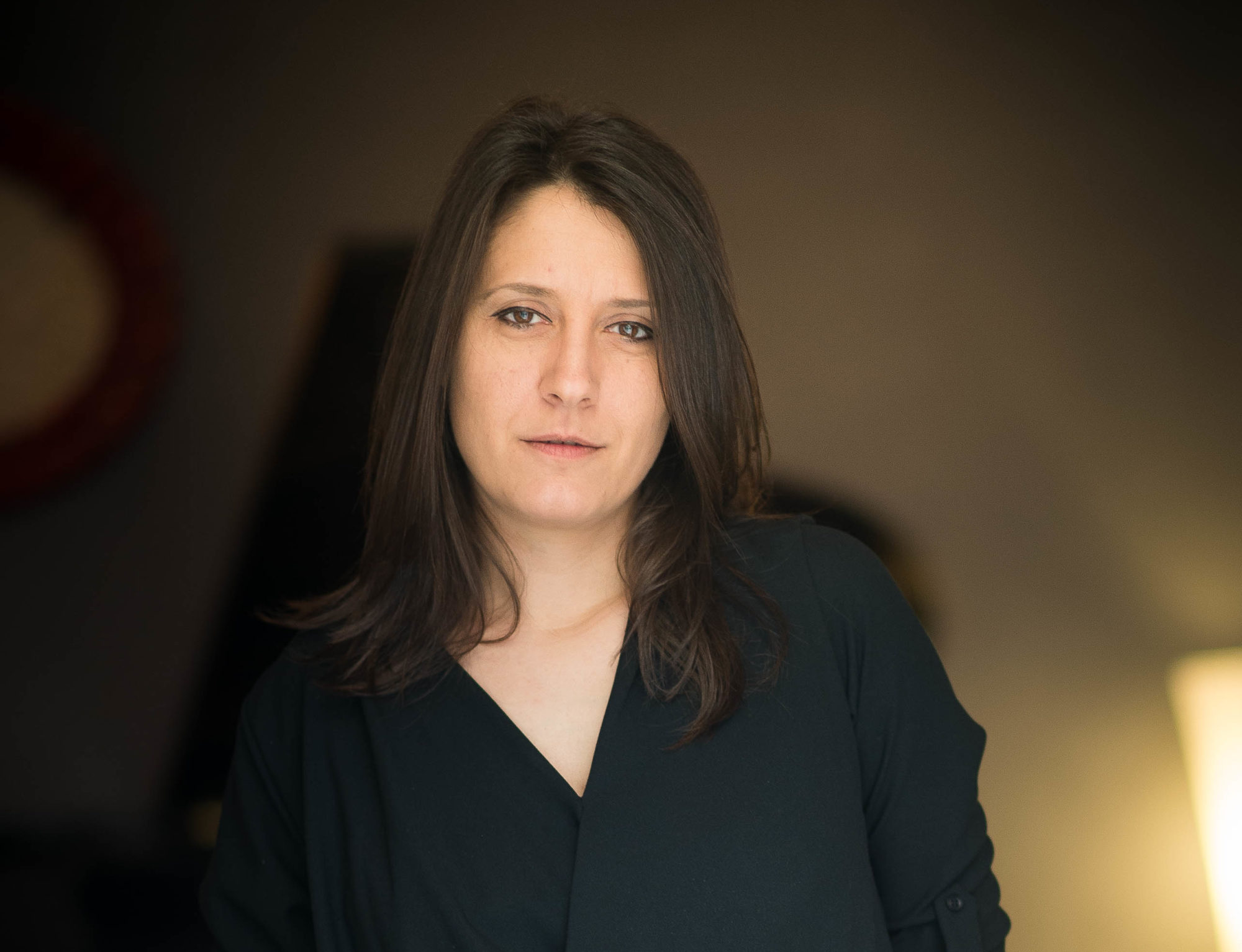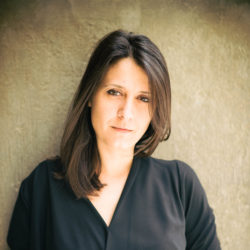Giovanna Riboli
Organista titolare dell’organo Onofrio Zeffirini da Cortona (1558) della Badia Fiorentina di Firenze, curatrice di 17 manoscritti miniati in notazione quadrata (canto gregoriano) risalenti ai secoli XV–XVIII, e preparatrice vocale del coro delle Fraternità Monastiche di Gerusalemme.
È organista, direttrice e musicologa con una carriera che abbraccia l’attività concertistica, la ricerca storica e la didattica, specializzata in musica sacra, canto gregoriano e beneventano e repertori organistici storici.
Nata a Firenze, si è diplomata in Pianoforte (2001) e in Organo e Composizione Organistica con Alessandro Albenga (2009). Dopo ulteriori studi al Conservatorium van Amsterdam con Pieter van Dijk, ha conseguito il Bachelor e Master of Music in esecuzione storica all’organo, completando la formazione sullo strumento di Christian Müller (1738) della Sint Bavo Kerk di Haarlem. Nel 2017 ha ottenuto il diploma in Direzione di coro con Fabio Lombardo, presentando la Via Crucis di Liszt in un concerto–esame basato su una ricerca storica interpretativa.
La sua carriera concertistica comprende esibizioni in importanti teatri e festival in Italia, Paesi Bassi, Germania, Spagna, Francia, Polonia, Argentina, Uruguay e Stati Uniti. Si è esibita al Maggio Musicale Fiorentino, Roma Festival Barocco, Festival Internacional de Órgano del Uruguay e Sweelinck International Organ Festival.
Nel novembre 2024 ha debuttato come direttrice alla Carnegie Hall di New York, dirigendo il progetto Spiritus Dei ferebatur, un evento dedicato ai primi canti liturgici cristiani, accolto con entusiasmo da pubblico e critica.
Nel 2018 ha vinto un finanziamento nell’ambito dell’Anno Europeo del Patrimonio Culturale, promosso dal Ministero della Cultura italiano, con il progetto Diversità e dialogo interculturale nella tradizione musicale, dedicato allo studio e alla diffusione del patrimonio musicale europeo ed extraeuropeo, con particolare attenzione alla tradizione vocale georgiana.
Ha registrato per Tactus e Brilliant Classics, tra cui The Organ of the Badia Fiorentina, che ha ricevuto quattro stelle da BBC Music Magazine, è stato segnalato da Rete Toscana Classica e Rainews24 come CD del mese, e ha ottenuto un ampio consenso internazionale.
Le sue ricerche sull’organo Zeffirini e sui manoscritti miniati della Badia Fiorentina sono pubblicate in volumi accademici e negli Atti del Convegno di Studi Medievali NUME (2023).
Ha ricoperto il ruolo di organista e direttrice di coro in importanti chiese di Amsterdam, Firenze e Buenos Aires, collaborando inoltre all’organizzazione di festival organistici internazionali.
Ha collaborato con l’Università di Firenze – Facoltà di Giurisprudenza per il corso Diritto e Musica.
Nel 2023 è stata docente e relatrice al Summer Course dell’Università di St Andrews (Scozia), trattando temi di prassi esecutiva organistica e ricerca storica. Nel 2025 è stata ospite dell’Università di Cambridge, dove ha tenuto una masterclass di organo e un concerto presso il Trinity College.
Nell’ottobre 2025 ha svolto una residenza alla Florida State University (USA), tenendo lezioni sul canto liturgico medievale e sulla prassi esecutiva rinascimentale e barocca.
È professore di Musica Sacra al Conservatorio di Benevento, dove insegna anche Organo e Canto Gregoriano, e dirige un coro specializzato nel repertorio liturgico antico (VII–XI secolo).
È cofondatrice e direttrice artistica dell’associazione culturale Mesotonica, che promuove la musica antica a Prato, e direttrice artistica del Festival Internazionale di Musica Antica PratoAntiqua.
Dal 2015 è organista principale dell’organo Zeffirini da Cortona (1558) a temperamento mesotonico della Badia Fiorentina, il più antico monastero di Firenze, citato da Dante Alighieri nel Canto XVI della Divina Commedia, e luogo dove Giovanni Boccaccio, nel 1373, tenne la prima Lectura Dantis che conferì alla Commedia l’epiteto di “Divina”.
Recensioni e Riconoscimenti Critici
Le sue interpretazioni sono state lodate dalla critica internazionale per profondità espressiva e maestria tecnica.
La Nación (Buenos Aires) ha scritto:
“È con Bach che l’arte interpretativa di Giovanna Riboli raggiunge la sua massima potenza, unita a un’eccellente tecnica organistica.”
BBC Music Magazine ha assegnato quattro stelle alla registrazione The Organ of the Badia Fiorentina, definendola “virtuosistica e ricca di colore”.
Padre Carlo Turri Zanoni, Priore della Badia Fiorentina, ha scritto:
“La sua consapevolezza del significato teologico e mistagogico della musica all’interno della liturgia, maturata in anni di vita nei monasteri dove la preghiera è canto di monodia medievale con influssi bizantini, fa sì che le sue interpretazioni non siano un semplice accompagnamento alla Parola, ma il suo prolungamento.”
A proposito del suo invito all’Università di St Andrews, l’ateneo ha dichiarato:
“L’invito è conseguenza della riconosciuta competenza internazionale della Prof.ssa Riboli nel campo dell’esecuzione organistica e della ricerca correlata, delle sue attività discografiche e del suo ruolo di curatrice dell’organo cinquecentesco Zeffirini della Badia Fiorentina di Firenze.”
Le sue esecuzioni, trasmesse da Rete Toscana Classica e Rainews24, sono state acclamate dal pubblico e dalla critica in Europa e nelle Americhe per profondità, precisione e intensità spirituale.
Ambiti di Ricerca
- Canto liturgico medievale e rinascimentale (gregoriano e beneventano)
- Musica sacra e mistagogia della musica
- Prassi esecutiva del repertorio organistico rinascimentale e barocco
- Tecniche di diteggiatura antiche nel repertorio organistico
- Retorica e simbolismo nell’interpretazione storica
- Semiologia e poetica della notazione
- Risonanza dello spazio sacro e acustica liturgica
- Dialogo tra musica, teologia e filosofia
- Tradizione orale e scritta dei sistemi neumatici
- Il suono come simbolo e rivelazione nel tempo liturgico
- Patrimonio musicale globale e percorsi interculturali del sacro
- Connessioni tra i differenti repertori liturgici storici

